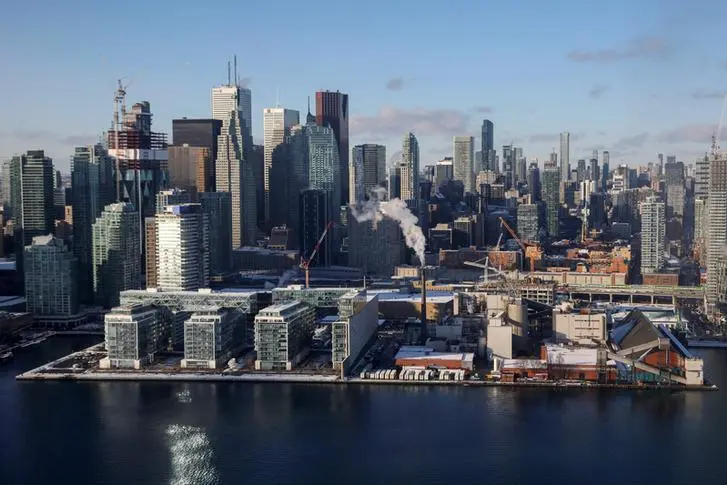PHOTO
Canada's residential construction activity has slowed in recent months due to a tight labor market and higher borrowing costs, a factor that could thwart the government's plans to reduce a housing shortfall and add to the recovery in home prices.
That would be bad news for the Bank of Canada as it seeks to lower inflation but also a problem for Prime Minister Justin Trudeau who has vowed to improve housing affordability.
While a federal election is not due until 2025, housing affordability is among the top concerns for Canadians who have grappled with supply shortages. The Liberal Party government's ambitious plan to welcome 500,000 immigrants per year by 2025, or about 1.25% of its population, is expected to fuel robust demand for housing.
A slowdown in residential construction "is absolutely at odds with plans for the supply of housing to increase to keep step with immigration," said Randall Bartlett, senior director of Canadian economics at Desjardins.
In April 2022, the Liberal government announced plans to double housing construction over the next decade.
Housing starts, however, will decline to 212,000 units in 2023 from 262,000 in 2022, held back by labor shortages, the high cost of materials and increased financing costs for developers, Canada Mortgage and Housing Corporation (CMHC), the national housing agency, projected last month.
"When combined with the surge in demand as a result of immigration, this lackluster supply will put further upward pressure on (home) prices," CMHC said.
On Tuesday, the Canadian Home Builders' Association said that 64% of builders expect to have fewer starts this year than last, while investment in residential building construction, after adjusting for inflation, fell in March to its lowest level since June 2020.
After a year long slump, the average home price has jumped 17% in the three months since January, when the Bank of Canada signaled a pause in its tightening campaign.
Coupled with higher mortgage rates, a recovery in home prices would make it more costly for Canadians to buy homes, an issue opposition Conservative Party leader Pierre Poilievre has already pounced on.
"Trudeau promised to make housing more affordable. It's been 8 years (since he took power), and now, housing costs have doubled," Poilievre said on Twitter earlier this month.
Speaking with the heads of Canada's municipalities last week, Trudeau said the government's next "long term infrastructure" plan will be revealed this autumn.
"I can share with you today that this funding will have very direct links to housing," he added.
Affordability and housing are among the top priorities for Canadians, especially in the vote-rich Greater Toronto Area, where housing supply is a big problem, said Darrell Bricker, CEO of pollster Ipsos Public Affairs.
"The people who could vote for the Conservative Party are... middle class aspirants who are feeling that they're being denied because of the price of real estate, the height of interest rates, and the lack of construction supply," Bricker said.
Borrowing costs could ease in time but there are other obstacles to new home construction, such as environmental opposition to building on protected land, and resistance to urban density, said James Laird, co-founder of mortgage rate comparison site Ratehub.ca.
"The 'not in my back yard' mentality applies throughout every city," Laird said. "That really slows things down."
(Reporting by Fergal Smith in Toronto and Steve Scherer in Ottawa Editing by Marguerita Choy)





















